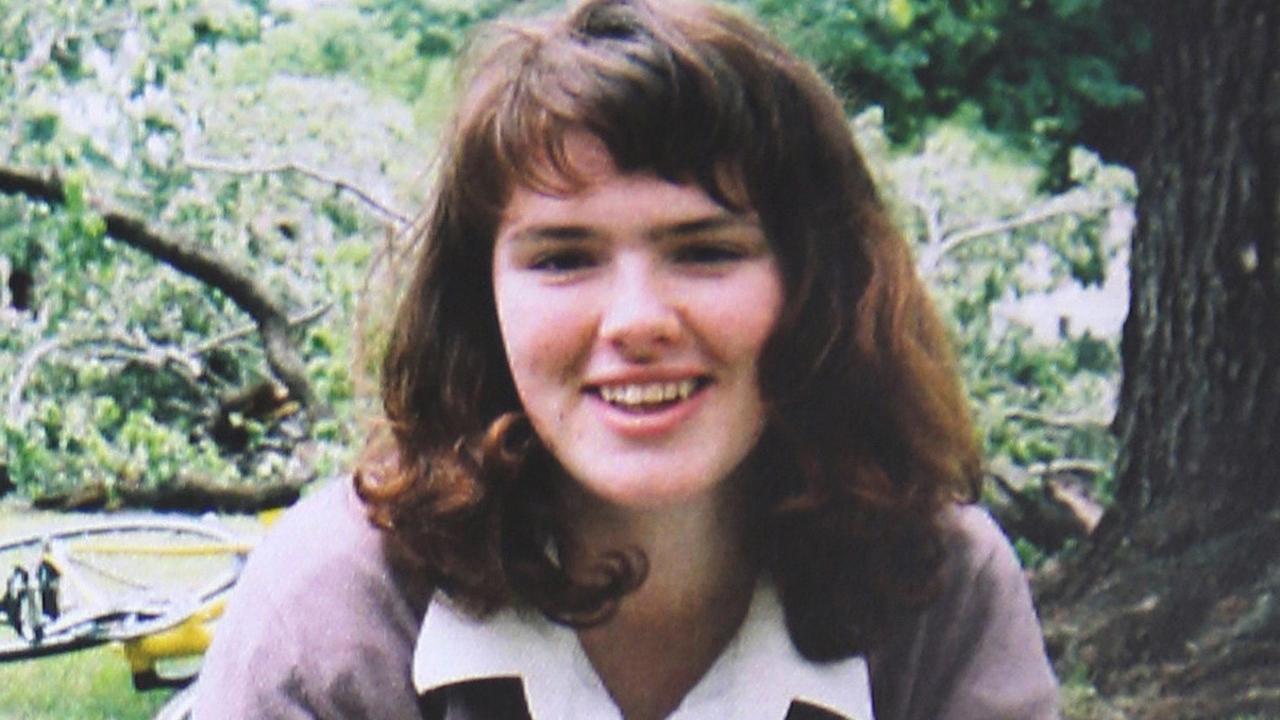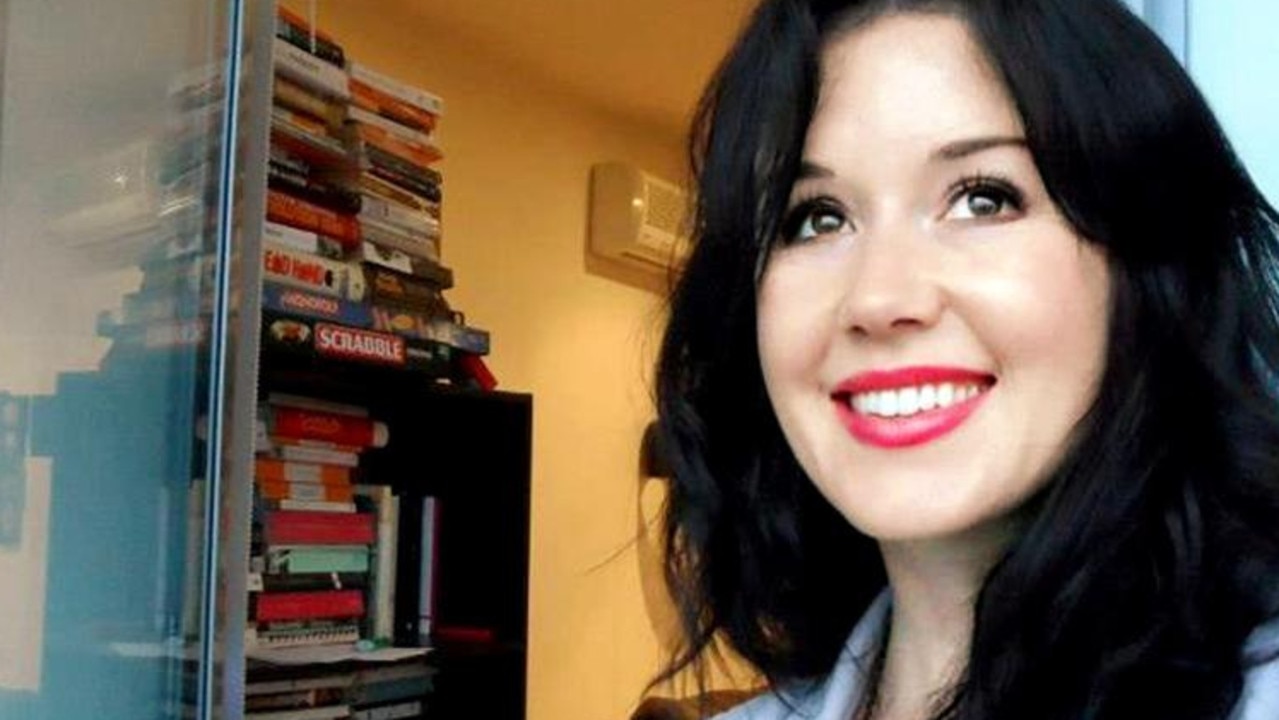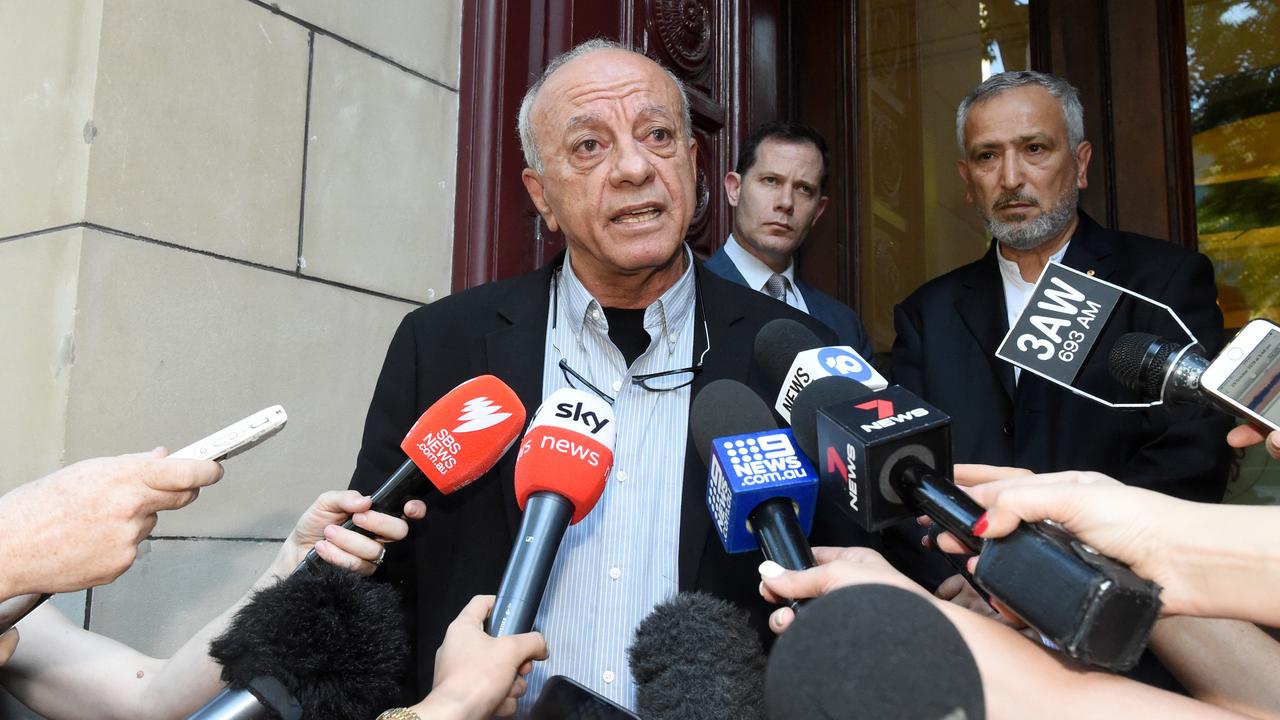#LetUsSpeak: New Bill will prevent Jill Meagher, Eurydice Dixon from ever being named again
Jill Meagher, Eurydice Dixon and Aiia Maasarwe are names we all know. But if a new law is passed they can never be named publicly again.
OPINION
This week the Victorian Government will debate a proposed gag-law which would outlaw anyone ever naming Jill Meagher, Eurydice Dixon or Aiia Maasarwe again.
Imagine if from now on murdered rape victims could never be named in public, and women such as Jill Meagher could only ever be referred to as “Adrian Bayley’s victim”?
Imagine what would happen if grieving relatives such as Aiia Maasarwe’s father Saeed Maasarwe – who has spoken so beautifully about his own murdered child – could risk four months jail each time he names either himself or his daughter in public?
Imagine too, what would happen if family members of Eurydice Dixon were forced to pull down their own social media posts naming Eurydice and the appalling circumstances around her murder?
RELATED: New law a ‘victory for paedophiles’

Well, this is the brave new world we could be living in if the Justice Legislation Amendment Bill 2020 becomes law in Victoria.
The proposed Bill, which will be debated in parliament this week, would make it a crime to publish the name of any deceased sexual assault victim from Victoria. It would also have the effect of preventing grieving relatives from ever speaking directly to media under their real names – or writing autobiographies – if doing so could be seen to identify the victim.
Aside from sexual homicide cases, the law would also apply in many cases of suicide following sexual abuse.
This would mean several high profile families would be gagged against their will, including parents who have campaigned on behalf of their now dead children.
The law would also apply to both social media and mainstream media, meaning that not only would tens of thousands of news stories need to be pulled down – including the powerful essay published by Tom Meagher himself – but thousands of social media posts, memorial pages, Wikipedia pages, and even GoFundMe pages set up to help families with funeral expenses – would need to be pulled down.
RELATED: Insulting letter sent to rape victims
RELATED: Schoolgirl’s horror camping abuse

Indeed, while the Bill contains a clumsily crafted ‘amnesty clause’ which would exempt some older print stories, the way that media law works means that any online news article which is still accessible once the law is passed would still be captured regardless of when it was first published. This would make the amnesty clause essentially pointless.
Media outlets who failed to comply with the new censorship regime could face fines up to $8261 per individual offence.
But appallingly, individuals themselves – including grieving relatives – could face even harsher punishments for breaking the new law, including up to four months jail, fines of $3304, or both.
Horrifyingly, relatives and friends who are most impacted by these crimes will be actively muzzled in the public arena. They will not be able to share their cherished memories, or feelings of grief and nor – conveniently – will they be able to comment on others failings of the criminal justice system.
In fact, the only way for these family members to be able to speak out under their own names again, will be to go back to court at their own expense and inconvenience and apply for a court order: a process which others have found humiliating, expensive and traumatising. And why should the innocent, hurting party be forced to jump legal hurdles in order to be heard?
Equally concerning is the impact this will have on how stories get told: instead of humanising the victims, and centring the voices of people who knew and loved them, journalists will inevitably end up foregrounding the name and identity of the offenders.

It is the monsters who will end up taking centre stage, while the humanity of their victims will be suspended from view: they will be little more than nameless, faceless, forgotten ‘others’.
And as a community, we must ask, what message does this send to the family? Or other rape victims? Moreover, what message does it send to the offender, when their names are the ones up in lights?
Sadly, to me, it sends the message that – intentional or not – the Government is inadvertently colluding with the killers by extending the power they hold over the victim and the victim’s family. It sends the message that, even in death, the killers can continue to exert control, and inflict pain on the victim via their family.
However, according to the Government, the proposed Bill is designed to simply “enhance the privacy of deceased victims and their family members”.
That is, by censoring their names or requiring family members to go back through the court system, the Government believes they are protecting them from prying media.
It would be easier to believe that the intention was genuine, if the Government had bothered to consult with affected families prior to introducing this Bill earlier this month.
It would also be easier to believe they were sincere in protecting the rights of the family, if the solution didn’t conveniently happen to include an instant muzzle on those who are most likely to speak critically of the criminal justice system and the Government which sits behind it …. as they have done in the past.
(The Government claims they intend to consult with families and the public after the law is passed and implemented. In other words, once it’s too late.)

Of course, that’s not to say that all families in these circumstances will want the names of their loved ones splashed across the media and there is no question that the media can be both exploitative and intrusive: we can, have and do make mistakes.
But there are ways to strengthen ethical journalism which don’t involve blanket laws which muzzle families, and treat the names of innocent victims as verboten, like Voldermort.
We do not empower people through silencing them in the name of paternalistic protectionism.
Already this year, the Victorian Government should have learnt this lesson, after they introduced the deeply unpopular sexual assault victim gag-law, which currently still silences living rape survivors.
While this new Bill will partially amend that older gag law, unfortunately, it will essentially do so, by replacing that gag-law with an alternate gag-law: one which will muzzle the families of deceased rape victims instead of living ones.
It will also produce another damaging double standard where the names of victims can be published in every single type of homicide, except sexual homicide.
Singling out sexual homicide in this way will only confirm and exacerbate the stigma and shame around sexual violence by treating it as inherently sullying, dirty and taboo.
Earlier this year, when launching the #LetUsSpeak campaign, to oppose the muzzle on living sexual assault victims, I wrote that the only people to benefit from those gag laws were paedophiles and convicted rapists, who would likely be cheering in their jail cells.
If this law is passed, it will be murderers and killers cheering right alongside them.
After all, we must not forget that immediately following the horrific rapes and murders of Jill Meagher, Eurydice Dixon and Aiia Maasarwe, the media was able to share their names and faces far and wide.
It was through this mass media exposure – and the fact that these blameless young women were fully identified in the press – that information was crowd sourced which ultimately led to those arrests.
Now imagine if that hadn’t have happened. And now ask yourself, who really stands to benefit then?
Nina Funnell is the creator of the #LetUsSpeak campaign and has been awarded the 2020 Walkley Our Watch award for her reporting on sexual assault victim gag-laws.



